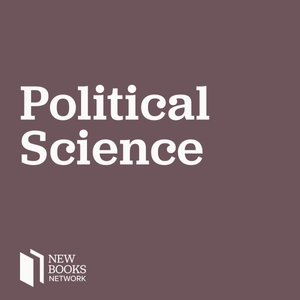
54. Animal Models in Neuroscience Research
07/13/23 • 22 min
In this week's episode, Carolina and Clara discuss the variety of model organisms that are used in scientific research and the unique advantages of each model. They also touch upon how ethics guides the use of animals in research, including the importance of the NC3Rs. And they explore some of the more unique animal studies that have informed research in unexpected ways, including understanding social learning by studying how bees dance, understanding ageing by studying social castes in ants, and more!
---
We hope you enjoy the episode! Please feel free to share with your friends and family, it means a lot to us🤍
Neuroverse Website
Podcast directory
https://anchor.fm/neuroverse9
Support us!
https://ko-fi.com/neuroverse
Twitter: @neuroverse_pod
https://twitter.com/neuroverse_pod?s=21&t=KvAEuwGNKFQ9IPKlL7NTEg
Instagram: @Neuroverse_pod
https://instagram.com/neuroverse_pod?igshid=YmMyMTA2M2Y=
Help us improve our podcast by giving us some feedback!
In this week's episode, Carolina and Clara discuss the variety of model organisms that are used in scientific research and the unique advantages of each model. They also touch upon how ethics guides the use of animals in research, including the importance of the NC3Rs. And they explore some of the more unique animal studies that have informed research in unexpected ways, including understanding social learning by studying how bees dance, understanding ageing by studying social castes in ants, and more!
---
We hope you enjoy the episode! Please feel free to share with your friends and family, it means a lot to us🤍
Neuroverse Website
Podcast directory
https://anchor.fm/neuroverse9
Support us!
https://ko-fi.com/neuroverse
Twitter: @neuroverse_pod
https://twitter.com/neuroverse_pod?s=21&t=KvAEuwGNKFQ9IPKlL7NTEg
Instagram: @Neuroverse_pod
https://instagram.com/neuroverse_pod?igshid=YmMyMTA2M2Y=
Help us improve our podcast by giving us some feedback!
Previous Episode

53. Challenges with Collaborative Neuroscience & the Impact of Generative AI (with Jai Bhagat)
Join us in today's episode where we discuss Challenges with collabroative neuroscience and how generative AI, language models are impacting the world with Jai Bhagat! Jai is from the US and got his Bachelor’s in Neuroscience from Boston University and then worked as a Technical Associate in Matt Wilson’s lab at MIT. Jai also worked with Matteo Carandini and Kenneth Harris as a Software Developer and is currently a PhD student at the Sainsbury Wellcome Centre in Tiago Branco and Tom Mrsic-Flogel lab performing experiments involving continuous recordings of freely moving rodents during decision-making tasks in naturalistic environments. We discussed the International Brain Lab and the benefits of its collaborative structure, the importance of studying animals doing naturalistic behaviour and how generative AI, language models are impacting the world!
---
We hope you enjoy the episode! Please feel free to share with your friends and family, it means a lot to us🤍
Neuroverse Website
Podcast directory
https://anchor.fm/neuroverse9
Support us!
https://ko-fi.com/neuroverse
Twitter: @neuroverse_pod
https://twitter.com/neuroverse_pod?s=21&t=KvAEuwGNKFQ9IPKlL7NTEg
Instagram: @Neuroverse_pod
https://instagram.com/neuroverse_pod?igshid=YmMyMTA2M2Y=
Help us improve our podcast by giving us some feedback!
Next Episode

55. Predictive Processing and Flexible Control of Behaviour (with Prof. Sonja Hofer)
In today's episode we are thrilled to be joined by Professor Sonja Hofer, Group Leader at the Sainsbury Wellcome Centre in UCL. The Hofer Lab researches the neural basis of sensory perception and sensory-guided decision-making. We discuss the latest paper released in her lab, preprint lead by Shohei Furutachi on Prediction Errors and how the brain functions as a prediction machine to help us efficiently navigate the world. We also discuss the new direction her lab is taking on flexible control of fear and anxiety-related behaviour, as well as decision-making, touching on the work carried out by the collaborative International Brain Lab. We would like to thank SWC for awarding Neuroverse their Public Engagement Grant. We aim to keep encouraging versatility, criticality and creativity in discussions! ---
We hope you enjoy the episode! Please feel free to share with your friends and family, it means a lot to us🤍
Neuroverse Website
Podcast directory
https://anchor.fm/neuroverse9
Support us!
https://ko-fi.com/neuroverse
Twitter: @neuroverse_pod
https://twitter.com/neuroverse_pod?s=21&t=KvAEuwGNKFQ9IPKlL7NTEg
Instagram: @Neuroverse_pod
https://instagram.com/neuroverse_pod?igshid=YmMyMTA2M2Y=
Help us improve our podcast by giving us some feedback!
If you like this episode you’ll love
Episode Comments
Featured in these lists
Generate a badge
Get a badge for your website that links back to this episode
<a href="https://goodpods.com/podcasts/neuroverse-211292/54-animal-models-in-neuroscience-research-31505153"> <img src="https://storage.googleapis.com/goodpods-images-bucket/badges/generic-badge-1.svg" alt="listen to 54. animal models in neuroscience research on goodpods" style="width: 225px" /> </a>
Copy





